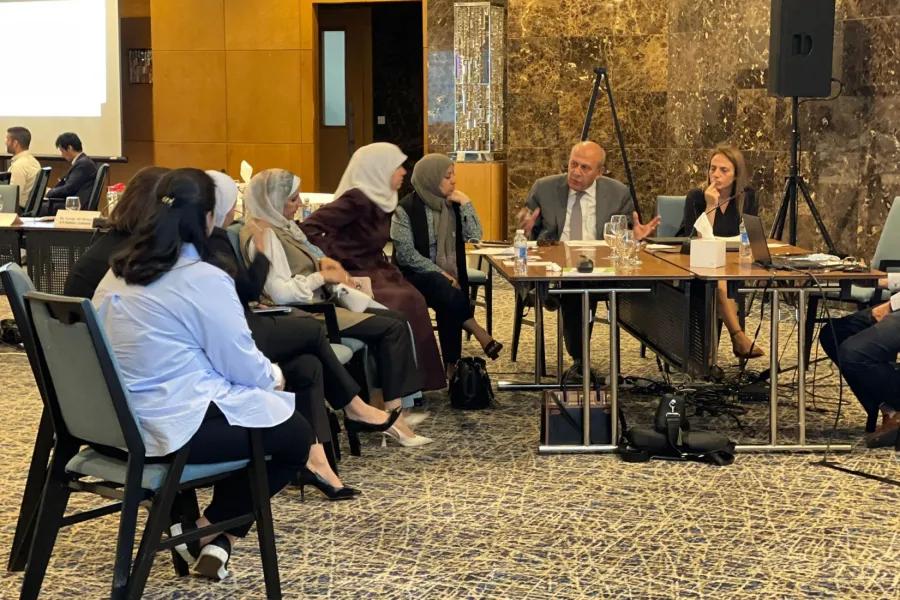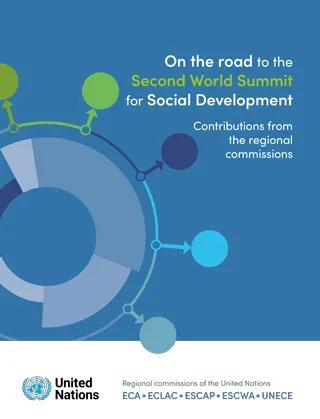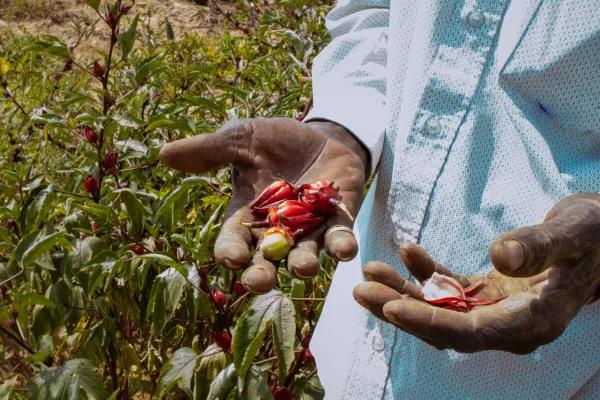United Nations Regional Commissions Set the Stage for the Second World Social Summit

As preparations accelerate for the Second World Summit for Social Development, a pivotal new publication from the five United Nations regional commissions provides a comprehensive snapshot of social development trends, challenges, and policy innovations across the globe. Titled “On the road to the Second World Summit for Social Development: Contributions from the Regional Commissions,” the report is a joint initiative by ECA, ECLAC, ESCAP, ESCWA, and UNECE.

Three decades after the 1995 Copenhagen Declaration, which placed people at the heart of development, this report underscores the enduring relevance—and urgency—of its ten commitments. Drawing from regional realities and emerging global risks, the document provides a critical evidence base for shaping the upcoming 2025 Summit.
Shared Challenges, Regional Responses
Across all regions—Africa, Asia and the Pacific, Latin America and the Caribbean, the Arab States, and Europe—the publication identifies persistent issues: poverty, inequality, limited social mobility, fragmented labour markets, and gaps in access to education, health, and social protection.
Yet, it also highlights innovative policy responses: from cash transfer programmes in Latin America and community health insurance in Africa to gender-sensitive digital education initiatives in Asia and social care reforms in Europe.
Ten Strategic Guidelines for Inclusive Social Development
The report culminates in ten overarching guidelines to accelerate progress:
- Build universal, gender-sensitive social protection systems.
- Reduce multidimensional inequality, including gender inequality.
- Transform education systems for lifelong learning and workforce needs.
- Ensure universal health coverage as a public good.
- Integrate labour inclusion into poverty-reduction strategies.
- Harness digital transformation to reduce disparities.
- Strengthen institutions for resilient social policymaking.
- Align national efforts with regional and global commitments.
- Secure inclusive financing through fiscal compacts and global solidarity.
- Address emerging challenges like climate risks and demographic shifts.
A Call to Action Ahead of Doha
The report positions the 2025 Summit in Doha as a critical opportunity to reignite political will, strengthen international cooperation, and renew the global social contract. As UN Secretary-General António Guterres noted, the Summit should “live up to the values of trust and listening” to advance universal health, decent work, housing, and education.
By bridging regional experience with global ambition, this publication lays the foundation for a transformative agenda at the Second World Social Summit.
Source: UN Regional Commissions
 Welcome to the United Nations
Welcome to the United Nations


